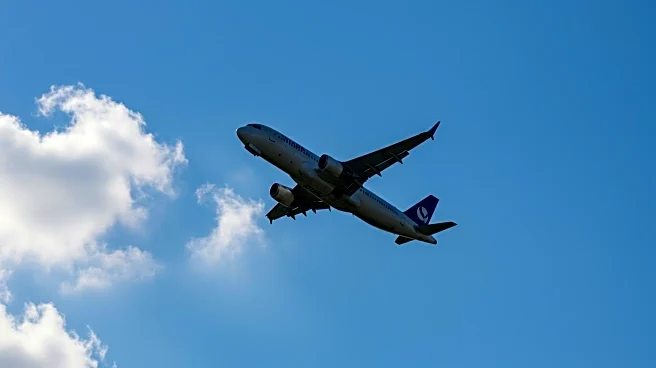What's Happening?
Spirit Airlines is facing significant financial challenges, raising concerns about its ability to continue operations. The airline recently reported substantial losses and a decrease in revenue, leading to doubts about its viability over the next year. Spirit, known for its low-cost, no-frills model, has historically influenced the pricing strategies of major airlines by offering competitive fares. The potential closure or acquisition of Spirit could lead to increased airfares across the industry. The Justice Department previously blocked a merger between JetBlue and Spirit, citing concerns over reduced competition and higher consumer costs.
Why It's Important?
The potential disappearance of Spirit Airlines could have widespread implications for the U.S. aviation industry and consumers. Spirit's low-cost model has pressured other airlines to offer competitive pricing, benefiting travelers seeking affordable options. If Spirit ceases operations or is acquired, airfares may rise, affecting budget-conscious travelers and reducing market competition. The situation highlights the broader impact of airline consolidation on consumer prices and market dynamics. Stakeholders, including passengers and competing airlines, may face financial repercussions if Spirit's influence on pricing diminishes.
What's Next?
Spirit Airlines is actively working on initiatives to stabilize its financial situation and avoid closure. The airline's future may involve potential mergers or acquisitions, which could face antitrust scrutiny similar to the blocked JetBlue deal. The Trump administration's approach to antitrust cases may differ from the previous administration, potentially influencing merger outcomes. Industry experts suggest that Spirit's valuable assets, such as aircraft and airport slots, make it an attractive acquisition target. The ongoing financial struggles of other low-cost carriers may complicate merger discussions.
Beyond the Headlines
The situation with Spirit Airlines underscores the complexities of airline mergers and their impact on market competition. The debate over consolidation raises ethical and economic questions about consumer protection and fair pricing. The potential loss of Spirit's competitive influence could lead to long-term shifts in the aviation industry, affecting fare structures and consumer choice. The case highlights the importance of regulatory oversight in maintaining a balanced market and protecting consumer interests.











